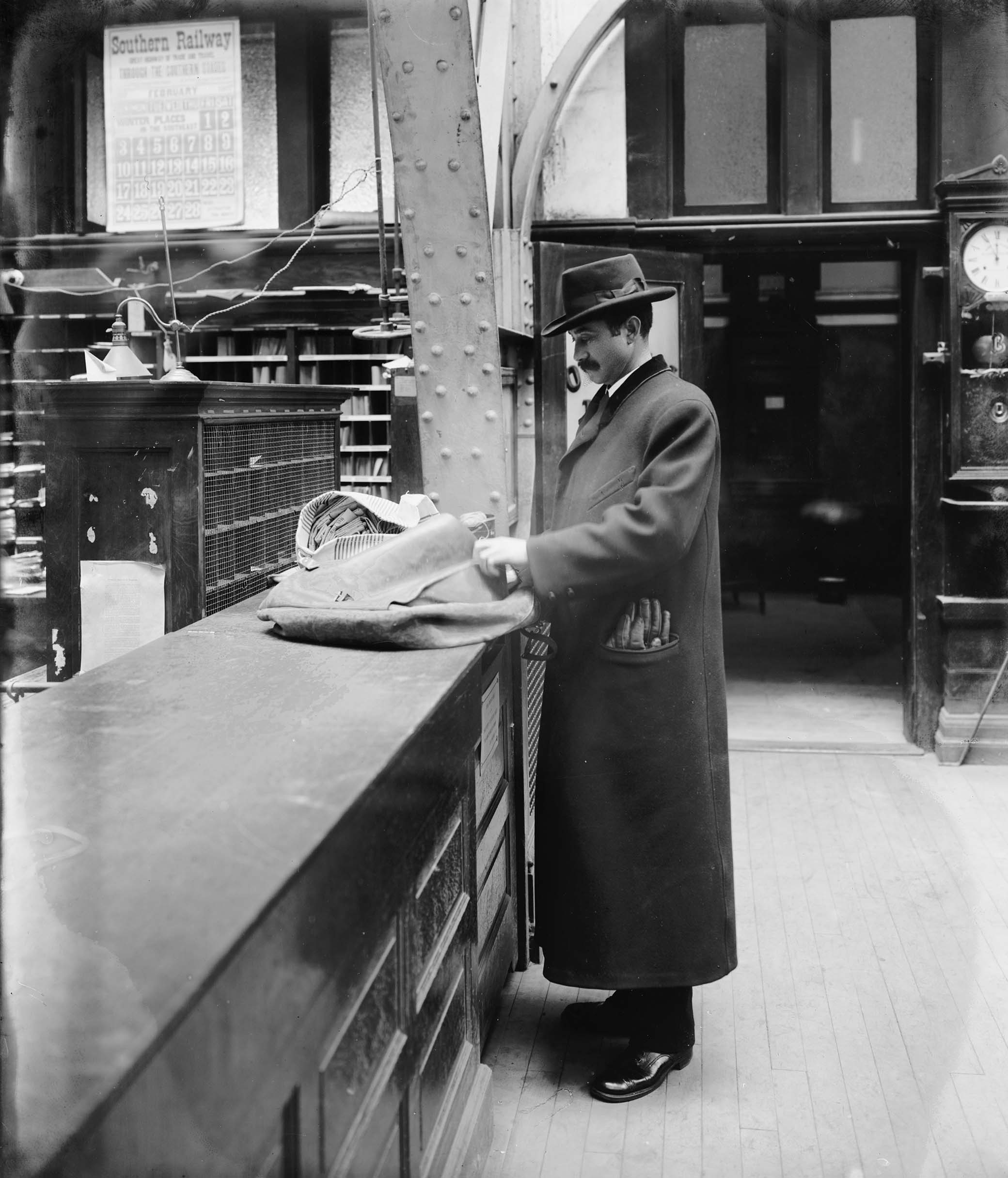
Post office, twentieth century. Photograph by Harris & Ewing. Library of Congress, Prints and Photographs Division.
When the London newspaper the Athenian Mercury, edited and published by the author and bookseller John Dunton, first answered questions about romance, bodily functions, and the mysteries of the universe in 1691, it may have created the template for the advice column. But the history of advice stretches back even further into the past. Advice—whether unsolicited, unwarranted, or desperately sought—appears in ancient philosophical treatises, medieval medical manuals, and countless books. Lapham’s Quarterly is exploring advice through the ages and into modern times in a series of readings and essays.
Charles Lutwidge Dodgson wrote many letters, and he sometimes offered a bit of advice in them. To a friend feeling lonesome and irritated after a move in 1885, he wrote that “every new form of life we try is, just at first, irksome rather than pleasant.”
Suppose you hurt your arm, and had to wear it in a sling for a month. For the first two or three days the discomfort of the bandage, the pressure of the sling on the neck and shoulder, the being unable to use the arm, would be a constant worry. You would feel as if all comfort in life were gone; after a couple of days you would be used to the new sensations; after a week you perhaps wouldn’t notice them at all, and life would seem just as comfortable as ever.
So my advice is, don’t think about loneliness, or happiness, or unhappiness, for a week or two. Then “take stock” again, and compare your feelings with what they were two weeks previously. If they have changed, even a little, for the better you are on the right track; if not, we may begin to suspect the life does not suit you. But what I want specially to urge is that there’s no use in comparing one’s feelings between one day and the next; you must allow a reasonable interval for the direction of change to show itself.
In 1891 he advised his nephew, a new clergyman, on writing sermons: “Give your decisions boldly and clearly; they will probably be right. But do not give your reasons: they will probably be wrong.”
If your lot in life is to be in a country parish, it will perhaps not matter much whether the reasons given in your sermons do or do not prove your conclusions. But even there you might meet, and in a town congregation you would be sure to meet, clever skeptics, who know well how to argue, who will detect your fallacies and point them out to those who are not yet troubled with doubts, and thus undermine all their confidence in your teaching.
In 1889 he decided to offer advice on letter writing itself to a larger audience, publishing Eight or Nine Wise Words about Letter Writing under his pen name, Lewis Carroll, and selling it packaged with an invention of his, the Wonderland Postage Stamp Case, which held stamps and organized them by value, making it easier to find the correct postage. One section of the booklet addressed the elegant art of ending a letter.
If doubtful whether to end with “yours faithfully,” or “yours truly,” or “yours most truly,” etc. (there are at least a dozen varieties, before you reach “yours affectionately”), refer to your correspondent’s last letter, and make your winding-up at least as friendly as his; in fact, even if a shade more friendly, it will do no harm!
A postscript is a very useful invention, but it is not meant (as so many ladies suppose) to contain the real gist of the letter; it serves rather to throw into the shade any little matter we do not wish to make a fuss about. For example, your friend had promised to execute a commission for you in town but forgot it, thereby putting you to great inconvenience; and he now writes to apologize for his negligence. It would be cruel, and needlessly crushing, to make it the main subject of your reply. How much more gracefully it comes in thus! “P.S. Don’t distress yourself any more about having omitted that little matter in town. I won’t deny that it did put my plans out a little, at the time, but it’s all right now. I often forget things myself, and ‘those who live in glass houses, mustn’t throw stones,’ you know!”
When you take your letters to the post, carry them in your hand. If you put them in your pocket, you will take a long country walk (I speak from experience), passing the post office twice, going and returning, and, when you get home, will find them still in your pocket.
Read the other entries in this series: Inez Milholland and Eugen Boissevain, George Washington, Plutarch, Chrétien de Troyes, Yan Zhitui, Nizam al-Mulk, Saadi, Giovanni Della Casa, Maria Edgeworth, Dan McQuade on basketball manuals, and Leopold Froehlich on syndicated advice columnists.